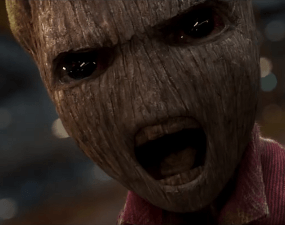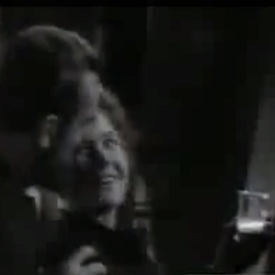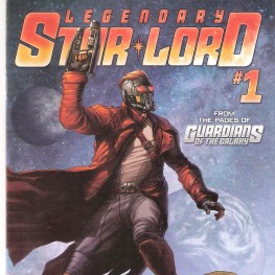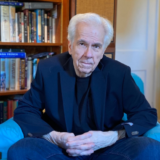
OBIR: Occasional Biased and Ignorant Reviews reflecting this reader’s opinion.
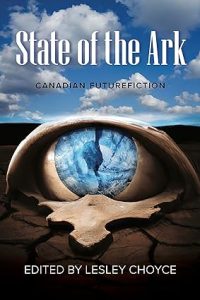
STATE OF THE ARK: Canadian Futurefiction
Publisher: Pottersfield Press, Lawrencetown Beach, Nova Scotia, Canada, 2023.
Editor: Lesley Choyce
Cover Art – by Gail LeBlanc & 123rf/isafoto
Introduction – by Lesley Choyce
Review:
This book is a follow up to “Ark of Ice” published in 1992. It had suggested the very physicality of Canada would be a refuge in a changing world. Now, it appears we have much more to worry about.
Star Light, Star Bright – by Robert J. Sawyer
Premise:
What happens when people choose to live on the outside of a Dyson Sphere?
Review:
Revealed are aspects of life on a Dyson Sphere I’ve not seen before, aspects which have evolutionary implications. Rather fun is some of the logic employed by characters trying to puzzle things out. What seems obvious to us might not even occur to them. The super-duper nature of the Dyson Sphere is taken for granted. This story answers the question “Then what?” The result is curiously nostalgic and rather optimistic. A hard-science yet very human first story for this anthology.
2115: Notes Toward Nine Stories of the Future – by Greg Bechtel
Premise:
The title says it all.
Review:
Brief notes suggesting variations on proposed solutions to problems not yet fully realized. Fear not. Not the same old same old. Some highly original concepts presented, the uniquely paradisiacal Canadian totalitarian state especially intriguing. The future may not only be far worse than we are currently worrying about, but also far more interesting.
The Card is the World – by Candas Jane Dorsey
Premise:
Never let an investor into the lab. Always risky.
Review:
I remember the 1960s. I, too, was a weekend hippie, though I never bought into drugs. Instead, as a horny teenager, I was looking for some of that free love the CBC kept talking about. Never found any. One thing I definitely did not appreciate was psychedelia. Too hard on the eyes. Never liked it.
In this story an accident in a lab releases an innovative technology into the world before it has been properly understood or perfected. The proposed tech has been written about for decades, yet this is a variation I’ve not previously come across. I’m sure the results would be welcomed by many, but not by me. I couldn’t stand it.
Makes me wonder if drug addiction is nature’s mostly abortive experiment to develop a new humanity capable of coping with the world we are about to create for ourselves. For some it would represent ultimate freedom. I find it terrifying. One thing for sure, impactful story. Thought provoking.
Terminus – by Élisabeth Vonarburg
Premise:
The ability to explore alternate universes is a worthy goal. Right?
Review:
The “Bridge” is technology which allows individuals to appear in alternate universes, often, though not always, on alternate Earths with roughly comparable technology. So, people get around. Think of the technology! The solutions to current problems! The wonders of advanced philosophy and new religions!
Trouble is one voyager’s cornucopia of delights might be another voyager’s Pandora’s Box. Even worse, repetition could lead to the mission statement devolving into personal motivation, potentially leaving the consequences of exploration up to a mere individual. Is that a good thing or a bad thing? All angles are explored.
One thing for sure, the Gernsbackian ideal that advanced technology is the ultimate solution to everything is a tad over-optimistic. This story injects a strong note of realism into the concept of contact between alternate universes. Definitely an intelligent and sophisticated antidote to the “Gosh-wow-oh-boy-oh-boy” syndrome.
Eternity Leave – by Tim Wynne-Jone
Premise:
What price visions?
Review:
The principal characters would appear to be autistic. They share one thing in common, difficulty communicating, but are reasonably content, not minding being shunned and able to function best when alone. Molly is the youngest, the least experienced, and prone to suspicions that the others know things she doesn’t and are reluctant to tell her what she suspects she needs to know, even though she’s not sure why she feels that way.
In essence she believes she is living in the midst of a mystery she needs to understand. Trouble is her view of reality may just be a figment of her imagination. Yet the others are beginning to be as curious about her as she is of them. She’s beginning to be afraid. But of what?
Possibly a metaphor for the shallowness of modern communication. People afraid to confront the horrors or wonders of anything beyond the comforting same old, same old? Perhaps. Molly is determined to break through self-imposed barriers.
VIXEN, SWAN, EMU, BEAR – by Katherine Govier
Premise:
What do animals mean to us, and we to them?
Review:
Four types of animals, and four types of encounter. Increasingly our interaction reflects the growing dominance of humanity and its relentless exploitation of… well, everything. Animals have to cope with our presence more than we need concern ourselves about them. Our habitat is increasing. Their habitat is decreasing and, to a greater and greater extent, morphing into habitat suitable for us.
Yet we can’t stop imputing emotions and thoughts to critters as if they are but mirror reflections of ourselves. It’s the old noble savage vs cruel savage conundrum, once applied to indigenous peoples, now routinely targeting animals. Worst of all, animals remind us of ourselves and our failures, and that we are not willing to forgive.
The vignettes depicting the four animals of the title are brilliantly conceived reflections of our inner turmoil. Mother nature seems less natural day by day. Our mindset really doesn’t bear thinking about.
Me? I see a squirrel and am content to let it do squirrel stuff. I don’t want to know what it thinks about me. I really don’t.
Hammerhead – by John Park
Premise:
What happens when a man who thinks too much is forced to become a man of action?
Review:
Not quite an accurate statement of the premise, but close enough. The protagonist is forced to deal with an unbelievably dangerous situation, so dangerous it drives him in and out of absolute denial, rendering his understanding of the danger incomplete and near impossible to define.
I have some understanding of this. A couple of times I couldn’t believe what I was seeing and hesitated. Fortunately, someone else reacted quickly enough to save the person in danger. On the other hand, I once saved someone from burning to death and twice saved people from being crushed but only because I didn’t think but acted on impulse instead. Pausing to take the measure of a situation is often a mistake. Sometimes you just gotta act.
This is a complex story because of the convolutions of the protagonist’s thinking. I don’t know if I share his conclusions, but I identify with the guy and the SNAFU ambience of the story. It holds lessons for us all.
“Side Effects May Include” – by C.J. Lavigne
Premise:
How do you get ahead when you are doomed?
Review:
Every SF fan worth their salt has read the Pohl/Kornbluth novel “The Space Merchants,” and the P.K. Dick novel “Do Androids Dream of Electric Sheep” or seen its movie “Bladerunner.” Fact is these visions of consumer society gone mad are old hat and obsolete. What does our corporate future look like in light of recent technological developments?
Nobody wants to live in a totalitarian state but when one does come along there are, or at least were, ways to cope. Remember Samizdat? Or illegal music grooved on stolen X-ray sheets? But modern electronics and AI have the potential to turn totalitarianism into an obsessive micro-manager beyond Himmler’s most extravagant wet dream. Under these conditions it’s hard to define where and what you are let alone figure out what to do about it and where to go.
I’d say this story is particularly brilliant at illustrating the constant stress of a life composed of a steady drumbeat of arbitrary deadlines. Death by distraction, so to speak. Terrifying.
By the way—a total aside—it was Benito Mussolini who coined the word “totalitarianism” (“Tototlitario” in Italian) in the early 1920s. He defined it as “Everything within the state, nothing outside the state, nothing against the state.” Substitute the word “Corporation” and there you have our very possible future.
The Last Three Books of Diophantos – by Jean-Louis Trudel
Premise:
Who knew a palimpsest could inspire terror?
Review:
As a lover of the classics, I dream of the discovery of more palimpsests, old books written over ancient writing that can be teased into view by modern technology. Often, it’s merely yet another edition of the Iliad, but sometimes lost plays or histories. So naturally a story beginning with the unexpected acquisition of a palimpsest stirs my sense of wonder.
There are horror elements, so the early manifestation of a supernatural being seemed entirely appropriate. A key to understanding the plot is the identity of the apparition which is held back toward the end of the story. However, because I know Western classic history (Greek/Roman), I recognized the individual instantly from the description. This only increased my pleasure reading the story because it put everything into a solid context right from the get-go. Don’t worry. Not going to give the character’s identity away. For those unfamiliar with this particular bit of history, the context has to be laid out in the course of the story in order to render the resolution clear and understandable. Not going to interfere with that process here.
Suffice to say I really enjoyed reading this story. It brings together two of my main interests: speculative fiction and ancient history. My kind of story. I loved it.
Bright Future – by Jeremy Hull
Premise:
Which is better to explore: cyberspace or alien worlds?
Review:
Cyberspace, or other planetary systems, both are supposed to offer us wonders if only we have guts enough (and technology enough) to explore them. But what about the people left behind? And how do the explorers feel about the stay-at-homes? Not likely to be an either/or phenomena. More like Siamese twins wondering whether they should have an operation.
This story explores the human consequences of two different futures many of us purport to lust after with all our heart. Might make you want to think twice, or at least slow down. However, that may not be an option. How do we approach the “promise” of the future? Many theories. Not really any answers… yet.
Shoebox or the End of Civilization in Five Objects or Less – by Hugh A.D. Spencer
Premise:
What if the early days of computers in universities were a lot more sophisticated than we now pretend?
Review:
What if the first computer boffins weren’t trying to change the world in terms of figuring out how to create the internet or just improve computers as a research tool, but were actually and literally trying to change the world with computer technology never revealed to the public? Technology that required multiple nuclear reactors to energise? Technology developed at Waterloo University in Canada?
This is a fun alternate history, not least because it implies the Peter Principle (everyone rises to their level of incompetence) applies to University department administrators, ambitious scientists, and even more ambitious students more or less equally.
“Trust us. You’re safe in our hands” is something we hear from scientists, engineers, theoreticians, administrators and politicians seemingly every day, if you read between the lines. This story reveals we can’t trust them any more than we can trust ourselves.
Read-Only Memory – by Julian Mortimer Smith
Premise:
What if technology truly allows us to experience each other?
Review:
It will be done for the simplest of reasons: greed. Our very thoughts and emotions will be trivialised and monetised to benefit shareholders, not silly consumers. If it ever happens, this is how it will happen.
But that’s not the point of the story. For decades utopians have implied that if we could see others the way they see themselves, literally experience each other’s lives to the extreme of every subtle nuance, all problems would disappear and we would be as one, a happy family living in a state of bliss akin to heaven.
Total B.S. of course. Even to share but one individual’s mind would be a friggin nightmare. Monsters from the Id and all that. This story is a good deal more subtle, and more terrifying. This story will make you say, “Thank God I’m trapped in my own skull and not someone else’s.”
Elon Musk needs to read this. He really does.
Winter Pilgrimage of the Storytellers – by Terri Favro
Premise:
Can storytellers always earn a living?
Review:
Increasingly less so in this era of conspiracy theorists, idealogues, con artists, talk show rants and the simply voyeuristic pleasure of skipping through fantastic numbers of memes and media bites. But suppose technology is no longer an option? And unfettered imagination increasingly rare? As civilization decays, the bards may rise again. This story explores the implications. Mythology may not be what we think it is. Nor the past, nor the future. An interesting take not only what we become but also on what we actually are.
Substance. Light. – by Casey June Wolf
Premise:
What if heaven is just the beginning?
Review:
A very interesting take on death and its consequences. Think of it as a thought experiment, something people should contemplate before they die. (After all, waiting till after we die may be too late. Who can say?)
Literal-minded people might dismiss the tale as impossible fantasy or, reduced to its essence, pop psychology or new-age wishful thinking. But, let’s face it, death is a worthy subject of contemplation, and Casey’s powers of description elevate the underlying story to an inspiring level of vivid experience and revelation. This is what I want to learn from death. A useful lesson indeed. Young people, especially, can learn from this. Well worth reading.
Foster Earth – by Julie E. Czernada
Premise:
When you lose your child, do you fill the void by getting a pet dog? By adopting a baby boy or girl? Or maybe… just maybe… by adopting an infant alien?
Review:
Ome of the great problems SF writers deal with is how to portray a truly alien culture? Surely aliens with different sensory apparatus, different biological infrastructure, and different forms of mental state will behave differently, radically differently, from what we are accustomed to accepting as conceivable? What if the aliens are literally inconceivable by our standards? How do we communicate?
Julie’s story goes into great detail outlining the parameters of instinctual behaviour of an alien species and whether or not this is something we humans can cope with. One lesson I draw from this hypothetical situation is to have faith in our ignorance. An utterly fascinating first contact story.
Who is Joel Johnston? – by Spider Robinson
Premise:
What do passengers on a starship think about?
Review:
Well, right off the bat… sex. Or rather, falling in and out of love. Second, whether or not interaction is going swimmingly. Third, what the heck did they sign up for?
Actually, these problems afflict everybody living on Earth, and undoubtedly on any future Earths. So many questions raised, and spider provides some concrete answers.
Particularly useful, while incorporating the broad sweep of the origin of our basic self-destructive urges, he addresses the question of motivation. Darned useful advice for space travellers, and by extension anyone enduring a mundane life here at home on Mother Earth.
Alas, one aspect of his motivational therapy doesn’t apply to me. But I’m sure it will inspire others. Fundamentally an optimistic story, it may imply our future will not be as bad as we think we are.
Tantramar: A Love Story in a Time of Crisis – by Lesley Choyce
Premise:
Nothing like doomed love in a doomed world.
Review:
Climate change proved worse than expected and arrived faster than anticipated. Worse, most of what people and governments attempted to reverse the process merely accelerated everything. Turned out all our theoretical solutions were wrong.
And yet a group of freethinkers who call themselves “The Disruptors” appear to be cobbling together an antidote which might actually work. Hardly anyone believes them. Most oppose them. And the protagonist gets involved because he fell in love with a beautiful clone who was something of a Disruptor bigshot. But he, himself, does not possess her faith. He fears the consequences should she fail… or succeed.
This isn’t science fiction. It’s fantasy. The proposed solution is not practical, in my opinion. But it is a glimpse of how society is likely to adapt in unbearable circumstances. We always need hope lurking in the back of our mind somewhere. Else why go on?
Yet some readers may think the solution is perfect and exactly what we need. To put it another way, it never hurts to fall in love. Humanity needs that. It helps us cope. So, useful advice after all. An intriguing glimpse of a future none of us want but are probably powerless to stop.
CONCLUSION:
Every story in this anthology is a delight, a product of mature and intelligent thinking. No surprise, the contributors are a bunch of heavy-duty writers who have a lot to say. Definitely a pleasure to read. A superb example of speculative fiction at its best.
Check it out at: < State of the Ark >


